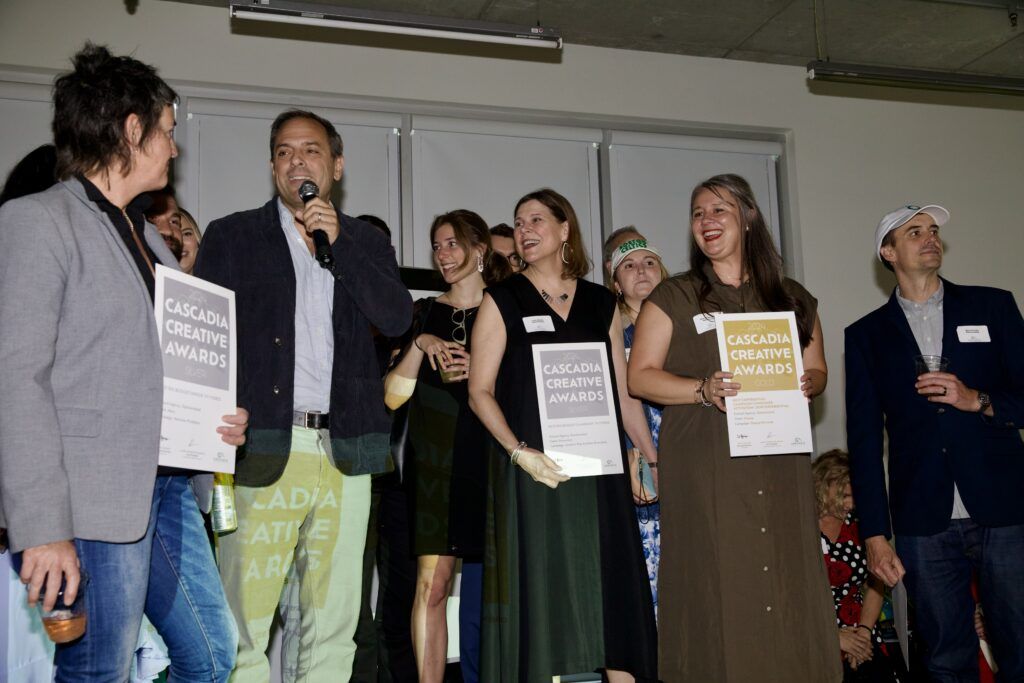Effective Strategies to Move from Intern to Vice President in Five Years or Less

When I first entered the job market after graduating college in 1994, prospects were bleak in the marketing industry. I took an internship because it was the only job I could get in the industry, just to get my foot in the door. In less than five years, however, I managed to earn the title Vice President at a startup marketing agency. While I preach patience and perspective to recent graduates regarding career trajectory expectations, I can share a few strategies and tactics I used to hack my agency career and increase my salary fivefold within that time.
Leverage Your Network
I’d like to give myself full credit for building a successful career in marketing without any handouts or family connections, but that claim would be false. After graduating from college, my mother introduced me to a public relations Account Supervisor at a marketing agency in Seattle. Based on two interviews with individuals on the advertising side, I elected to start my career in PR. I was only paid $500 for the 3-month, full-time internship, but it allowed me to get my foot in the door and kickstart my marketing career. That initial internship led to my first paying job in Portland, Oregon; the rest is history. I owe a debt of gratitude to my mother for that important initial introduction; however, after that, most of my future roles came through the network I curated. Never underestimate the value of your network, and don’t hesitate to ask for introductions. I’ve written about my networking philosophy on our blog if you’re interested in gaining more insights.
Be Curious
To make a mark during your internship or entry-level role, with the goal of securing a full-time position, have the curiosity of a five-year-old. Ask smart questions; do a cursory amount of research before asking questions that may have an obvious or readily available answer. Solicit feedback from managers and coworkers regularly and act on insights you gain through the process. Also, make time to get to know others in the organization, especially those in roles you find interesting. My most memorable discussion during my time as an intern was with the Creative Director at Elgin DDB. Unfortunately, he broke the bad news that I wasn’t qualified to be a creative in the advertising industry because I didn’t go to an advertising-specific school. Fortunately, that feedback shored up my focus on PR.
At the end of my three-month internship, I shared a survey I had created with coworkers in the PR department to solicit feedback and suggestions for areas of improvement. While a majority of the feedback I received was not particularly useful, I’ll never forget one response from a cubicle mate whom I had befriended. Instead of answering the simple 5-question survey, she wrote me a two-page letter. Her opening line was: “When I first met you, I wanted to smack you…” which got my attention. She went on to explain that while I initially came across as cocky and ‘too good for menial tasks,’ she was later surprised at my fearlessness and willingness to tackle any project thrown my way, without complaint.
Basically, she misunderstood my initial confidence and enthusiasm as cockiness. She went on to share helpful advice that guided my career, including suggestions around managing perceptions, which I’ve incorporated into this article.
Build a Network
Even though I wasn’t hired by the Seattle agency after my internship, I left with a fresh resume and essential PR industry experience. Having a global full-service agency on my resume helped secure my next (paying) position as a PR Intern at a technology PR firm in Portland. The position quickly turned into a full-time Account Coordinator role, and my monthly salary soared to more than $1,000, which was enough to cover living expenses. I quickly learned invaluable lessons in my junior role. The first was the importance of forging relationships with coworkers.
When I moved to Portland, I knew only one person, my cousin. As such, I naturally put effort into making friends with my coworkers. Those early relationships provided invaluable insights, guidance, and support. Since then, I’ve forged hundreds of bonds inside and outside of Portland, my adopted home. I’ve also expanded my network globally via platforms like LinkedIn and pdxMindShare. Lastly, I’ve invested time in local trade organizations like ThinkNW, SEMpdx, IABC, PRSA, and trade associations in industry verticals like hospitality. Those relationships have become critical roots as my career and needs have evolved.
Manage Perceptions
The first lesson taught by my new friends at the tech PR agency was the power of managing perception. I was initially told by the hiring partners that the office hours were 8 am to 5 pm, so I naturally showed up punctually at eight and left at 5 pm. Little did I know that showing up promptly at the established office hours would not expedite my career path. As sad as it may sound, I learned that it’s far more impactful to arrive a few minutes early and leave a few minutes later than the managing partners. It was an easy and effective way to demonstrate commitment, at least perceptually. I also discovered that my workstyle in 1995 was quite different from others. I didn’t rely on paper to do my job. I was once confronted by a senior partner (who was paper-based) and asked if I needed more work just because my desk was clean. Even though I was a top biller for the agency, others perceived me as lazy based on my minimalist workspace. Taking the hint, I started leaving stacks of papers on my desk and carrying file folders around the office, walking briskly and with a sense of purpose. I was complimented for improving my productivity despite an unchanged workload. Based on that early experience, I’ve resisted the urge to manage my teams based on perception and prefer to inspect rather than expect.
Step Forward and Volunteer
Perhaps the most valuable insight gained from my time at the PR firm was taking initiative when others didn’t and volunteering for additional projects or responsibilities. Early on in my intern role, a few members of the firm were helping ramp up what would become a sister web development agency. I volunteered to help with research (on a new website called Yahoo!) and continued developing relationships with the growing team located one floor below us. Eventually, our PR agency realized they needed a website, so they tapped the sister firm for in-kind help. Naturally, I volunteered to provide the PR services in exchange for the new company website. Within a few months, I was asked by the Sales Director to move downstairs and become the Marketing Manager for the fast-growing web development agency based on my initial success generating PR for the fledgling firm. That move changed the trajectory of my career. While I found success by volunteering within my company, there are a plethora of opportunities outside your employer to network that can make an impact on your career. Since I arrived in Portland, I volunteered for local non-profits like Big Brothers Big Sisters and SMART Reading, or provided pro-bono services for area charities, which resulted in new career opportunities.
Be a Self-Starter and Have a Thirst for Learning
When I first started as Marketing Manager in 1996, I had no previous real-world experience with broader marketing, let alone the Internet, and no one at the web development agency had the bandwidth or ability to manage my role and career. This ended up being a huge opportunity that allowed me to guide my path. I started by reading everything I could about marketing via the Worldwide Web. Despite a dearth of resources like books, conferences, and classes, I quickly learned a great deal about how to do online marketing. I felt obligated to share my newly acquired knowledge, which led me to create a weekly email newsletter (Anvil Ezine) to which I invited clients, peers, and local companies to join the growing list. The initial recognition and exposure whet my appetite for the next stage of my career.
Become a Thought Leader
Through my employer, growing network, and marketing efforts, I was asked to speak at industry events. In fact, my first major speaking opportunity was at a higher education communicators conference in Orlando, Florida. On my first-ever business flight, I realized I’d transitioned from sitting and listening to professors at Western Washington University to standing and speaking to professors attending the conference, all within a 2-year time span.
Shortly after, my visibility as a presenter and publisher generated interest from one of the largest full-service agencies in Portland. They asked me to join their high-tech practice group as the online PR guru, which I gladly accepted. My new role as a thought leader within the agency inspired me to pitch the idea of building a team of digital marketers within the PR department. My boss at the time agreed to support the idea, which kick-started my career as a team lead and manager. My boss taught me how to lead a team within a larger organization and provided a critical foundation for my next step as a Group Director of the growing online PR practice.
I never stopped being a thought leader or team lead after that point, which increased my exposure and influence within the 140-employee agency.
Take Risks and Dare to Innovate
Unfortunately, my boss, who had become a mentor and idol, parted ways with our agency, and I felt a little lost. A few months later, he approached me about co-founding an agency together. Since he was navigating a divorce and his life seemed a little chaotic, I turned him down. A month later, however, he returned with the same offer but demonstrated he’d got his life in order and the agency ready to launch. I couldn’t say no to an opportunity to be a part of a startup, so I joined Wave Rock in January 1999. The only ask I made was for a Vice President title, in case the agency crashed and burned, as it would look good on my resume. We gained early traction during the dot com boom, and over the next 1.5 years, grew from $0 to $3.5M and 35 employees. When we parted ways in the Fall of 2000, I mourned the breakup but immediately hung a shingle as Anvil Media, which I then ran for the next 22 years as President and Founder.
My marketing career started in September 1994 as an unpaid intern, and by January 1999, I was a Vice President. Granted, I was able to ride the Internet wave, but it wasn’t all luck. I followed opportunities with a sense of adventure and curiosity and built on every experience to hack my career path. By incorporating any number of the above techniques into your daily routine, you should experience an exponential return on your effort. While every person, role, employer, and industry are different, there are timeless strategies that employees can use to increase responsibilities, job titles, and associatedearning potential.
Kent Lewis is the Chief Marketing Officer for Deksia, founder of PDXMindShare, and Co-Founder, Past President and Advisory Board Member of SEMpdx.


